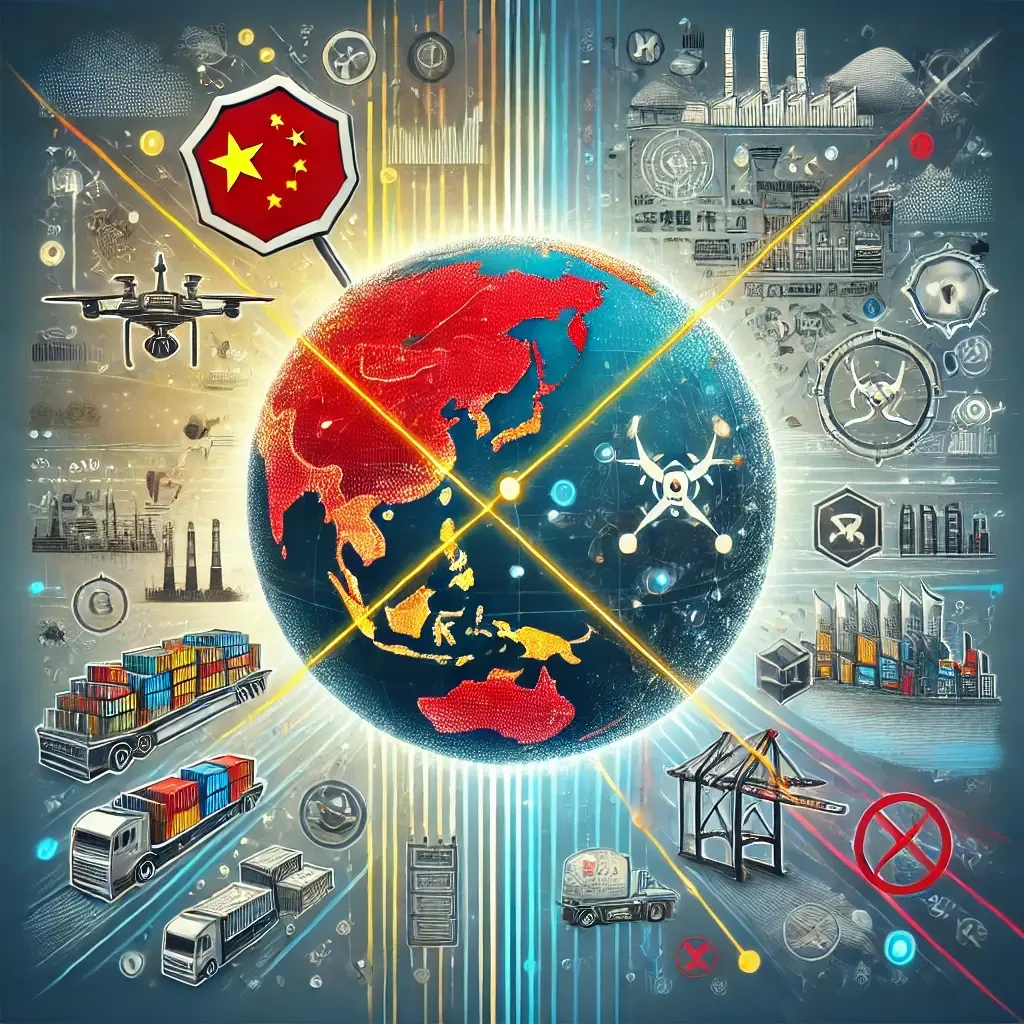Understanding China's Bond-Buying Frenzy and Its Implications for Importers
The recent surge in bond-buying activity in China signals broader economic trends and potential future challenges that importers should closely monitor. Here’s what this frenzy might indicate for importers:
1. Economic Uncertainty and Risk Aversion
Economic Slowdown: The high demand for government bonds suggests that investors are seeking safer investments due to concerns about economic stability and growth. This could indicate an impending economic slowdown or even a recession, which might affect production capabilities and lead times for your imports.
Deflationary Pressures: Persistent deflation can lead to lower consumer spending and reduced demand for goods, potentially causing lower production volumes and impacting the reliability of your supply chain. Historical data from past economic downturns, such as the Asian Financial Crisis in 1997, shows that deflationary pressures often lead to significant disruptions in production and supply chain reliability.
2. Financial Market Volatility
Currency Fluctuations: Significant movements in the bond market can lead to volatility in the Chinese Yuan. This could affect the cost of imports and necessitate more strategic financial planning to manage currency risk. During the 2015 Chinese stock market crash, for example, the Yuan experienced significant volatility, affecting international trade prices and profit margins.
Liquidity Issues: If smaller banks and financial institutions face increased scrutiny and restrictions, market liquidity might be affected. This could impact the availability of credit for suppliers, potentially causing delays or requiring more upfront payment from importers. In 2019, China’s Baoshang Bank takeover by regulators highlighted the potential for liquidity issues in the banking sector to disrupt financial markets.
3. Regulatory and Policy Changes
Central Bank Interventions: The People's Bank of China’s (PBOC) interventions to stabilize the bond market may lead to broader monetary policy shifts. Changes in interest rates and borrowing costs could affect the financial dynamics of importing goods. For instance, the PBOC's rate cuts in response to the COVID-19 pandemic in 2020 significantly impacted borrowing costs and financial planning for businesses.
Increased Regulatory Scrutiny: With regulators examining regional banks and financial institutions, there might be tighter controls and regulations on financial transactions. This could impact your suppliers' operations and their ability to finance production. The 2018 crackdown on shadow banking in China is an example where increased scrutiny led to tighter credit conditions for many businesses.
4. Implications for Supply Chain Management
Supplier Financial Health: Economic conditions driving the bond-buying frenzy might affect your suppliers' financial stability. Suppliers under financial strain may face difficulties in maintaining production quality and meeting delivery schedules. Historical examples include the financial crises of 2008, where many suppliers faced financial difficulties, leading to production delays and quality issues.
Inventory and Pricing Strategies: The deflationary environment suggests that prices might fall, potentially benefiting importers in the short term. However, long-term deflation could lead to broader economic issues, necessitating careful inventory and pricing strategies.
5. Signals for Future Planning
Need for Diversification: The current economic climate underscores the importance of not being overly reliant on a single country for your supply chain. Diversifying your sourcing to include other manufacturing hubs in Asia can mitigate risks and ensure more stable supply lines.
Proactive Risk Management: The situation highlights the need for proactive risk management strategies. This includes securing strong contracts with suppliers, maintaining a buffer stock, and having contingency plans for potential disruptions.
6. Potential Opportunities
Negotiation Leverage: In times of economic uncertainty, suppliers might be more willing to negotiate favorable terms to secure business. This can be an opportunity for importers to renegotiate contracts and improve terms.
Investment in Alternatives: Economic slowdowns can lead to innovation and the exploration of alternative sourcing and production methods. This can be a time to invest in new technologies or alternative markets that could offer long-term benefits.
How China Agent Ltd Can Help
At China Agent Ltd, we provide comprehensive support to help businesses navigate these challenges:
Monitoring: We offer ongoing monitoring of economic and regulatory developments in China to keep you informed. Our local presence allows us to stay ahead of changes and provide timely updates.
Contracting: We assist in drafting and negotiating strong contracts to protect your interests. This includes ensuring clear terms for pricing, quality standards, and penalties for non-compliance.
Supply Chain Mapping: Our team helps you map your entire supply chain, identifying potential risks and alternative suppliers. This ensures you have a clear understanding of your supply chain and can quickly pivot if necessary.
Negotiations: We leverage our local expertise to negotiate better terms with suppliers. This includes securing more favorable pricing, payment terms, and ensuring compliance with regulatory standards.
Risk Management: We help you develop proactive risk management strategies, including maintaining a buffer stock, diversifying your supplier base, and having contingency plans in place.
Technology Integration: We assist in integrating advanced technologies such as AI and IoT to improve supply chain efficiency and resilience.
Conclusion
The bond-buying frenzy in China serves as a crucial indicator of potential economic challenges ahead. For importers, it signals the need for vigilant monitoring of economic conditions, proactive risk management, and strategic planning to ensure supply chain resilience. By understanding these signals and preparing accordingly, importers can better navigate uncertainties and capitalize on emerging opportunities while mitigating potential risks.




